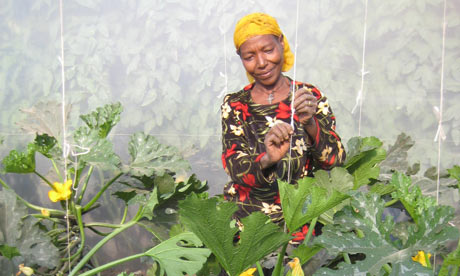What a world….
H/t reader kevin a.
* * *
PayPal: Donate in USD
PayPal: Donate in EUR
PayPal: Donate in GBP
The man who trades freedom for security does not deserve nor will he ever receive either. – Benjamin Franklin
Highly recommended article.

A woman tends vegetables at a giant Saudi-financed farm in Ethiopia.
We turned off the main road to Awassa, talked our way past security guards and drove a mile across empty land before we found what will soon be Ethiopia’s largest greenhouse. Nestling below an escarpment of the Rift Valley, the development is far from finished, but the plastic and steel structure already stretches over 20 hectares – the size of 20 football pitches.
The farm manager shows us millions of tomatoes, peppers and other vegetables being grown in 500m rows in computer controlled conditions. Spanish engineers are building the steel structure, Dutch technology minimises water use from two bore-holes and 1,000 women pick and pack 50 tonnes of food a day. Within 24 hours, it has been driven 200 miles to Addis Ababa and flown 1,000 miles to the shops and restaurants of Dubai, Jeddah and elsewhere in the Middle East.
Ethiopia is one of the hungriest countries in the world with more than 13 million people needing food aid, but paradoxically the government is offering at least 3m hectares of its most fertile land to rich countries and some of the world’s most wealthy individuals to export food for their own populations.
The 1,000 hectares of land which contain the Awassa greenhouses are leased for 99 years to a Saudi billionaire businessman, Ethiopian-born Sheikh Mohammed al-Amoudi, one of the 50 richest men in the world. His Saudi Star company plans to spend up to $2bn acquiring and developing 500,000 hectares of land in Ethiopia in the next few years. So far, it has bought four farms and is already growing wheat, rice, vegetables and flowers for the Saudi market. It expects eventually to employ more than 10,000 people.
But Ethiopia is only one of 20 or more African countries where land is being bought or leased for intensive agriculture on an immense scale in what may be the greatest change of ownership since the colonial era.
An Observer investigation estimates that up to 50m hectares of land – an area more than double the size of the UK – has been acquired in the last few years or is in the process of being negotiated by governments and wealthy investors working with state subsidies. The data used was collected by Grain, the International Institute for Environment and Development, the International Land Coalition, ActionAid and other non-governmental groups.
The land rush, which is still accelerating, has been triggered by the worldwide food shortages which followed the sharp oil price rises in 2008, growing water shortages and the European Union’s insistence that 10% of all transport fuel must come from plant-based biofuels by 2015.
Read moreThe 21st-century African land grab by rich countries facing global food and water shortages

Cartoon by Khalil Bendib
Children in Malawi who are forced to work as tobacco pickers are exposed to nicotine poisoning equivalent to smoking 50 cigarettes a day, an investigation has found.
Child labourers as young as five are suffering severe health problems from a daily skin absorption of up to 54 milligrams of dissolved nicotine, according to the international children’s organisation Plan.
Malawian tobacco is found in the blend of almost every cigarette smoked in the west. The low-grade, high-nicotine tobacco is often used as a filler by manufacturers, reflecting a long-term global shift in production.
Tobacco farms in America declined by 89% between 1954 and 2002. Three-quarters of production has migrated to developing countries, with Malawi the world’s fifth biggest producer. Seventy per cent of its export income comes from tobacco and the country is economically dependent on it.
Plan cites research showing that Malawi has the highest incidence of child labour in southern Africa, with 88.9% of five to 14-year-olds working in the agricultural sector. It is estimated that more than 78,000 children work on tobacco estates – some up to 12 hours a day, many for less than 1p an hour and without protective clothing.
Read moreMalawi’s child tobacco pickers ‘being poisoned by nicotine’ for 11p a day